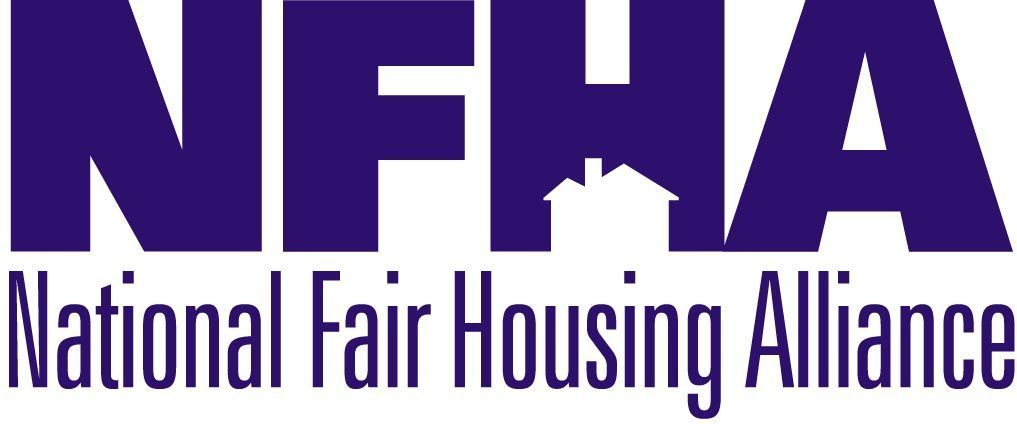The National Fair Housing Alliance Enthusiastically Supports Housing is Infrastructure Act and Other Critical Housing Infrastructure Bills Introduced by Chairwoman Waters
- At July 20, 2021
- By fhfla
- In News
 0
0
- $10 billion in a Community Revitalization Fund to support community infrastructure projects;
- $2.5 billion to support fair housing activities through the Fair Housing Initiatives Program to ensure infrastructure projects equitably benefit all communities;
- $15 billion for grants to support the elimination of exclusionary land uses and streamline development of fair and affordable housing;
- Funding to ensure consumers can access critical information about affordable and sustainable housing opportunities;
- $75 billion to fill capital needs for public housing;
- $45 billion for the Housing Trust Fund to support new rental homes for people with the lowest incomes;
- $35 billion for the HOME Investment Partnership Program for the construction, rehab, or purchase of homes for low-income people;
- The requirement that all infrastructure projects are implemented in a manner that affirmatively furthers fair housing, strengthens and develops neighborhoods, expands access to critical amenities, like broadband, clean water and energy, and transportation; and
- $5 billion in funding for fair housing staff at HUD to enable the agency to effectively implement programs, provide technical assistance to jurisdictions, and ensure compliance with federal civil rights laws.
Justice Department Obtains Settlement from Landlord to Resolve Claims Of Sexual Harassment Against Female Tenants
- At June 08, 2021
- By fhfla
- In News
 0
0

The Justice Department today announced it has reached an agreement with defendant Larry Nelson to resolve a Fair Housing Act lawsuit alleging that he sexually harassed female tenants while owning and managing San Diego area rental properties.
Under the consent order entered by the U.S. District Court for the Southern District of California, Nelson must pay at least $230,000 to $205,000 in damages to tenants harmed by his harassment and a $25,000 civil penalty to the United States. A judgment for an additional $350,000 also was entered against Nelson in favor of the United States, but is suspended based on sworn disclosure statements reflecting Nelson’s financial situation. Any misrepresentation or omission by Nelson on those disclosure statements will trigger collection of the suspended judgment. Nelson also is prohibited from being involved in property management of rental units in the future and must hire an independent professional property manager. He also must implement a nondiscrimination policy and complaint procedure and must release judgments obtained against victims whom he wrongfully evicted.
The United States’ lawsuit alleged that Nelson’s harassment spanned a period of nearly two decades. The allegations included that Nelson engaged in unwelcome sexual touching, offered to reduce monthly rental payments in exchange for sex, made unwelcome sexual comments and advances, made intrusive and unannounced visits to female tenants’ homes to further his sexual advances, and evicted or threatened to evict female tenants who objected to or refused his sexual advance.
“People deserve to be safe in their homes,” said Assistant Attorney General Kristen Clarke for the Justice Department’s Civil Rights Division. “Sexual harassment in housing deprives them of that security. The Justice Department will not tolerate landlords who abuse their power by sexually harassing their tenants and will continue vigorously to pursue allegations of sexual harassment.”
“Abusive landlords in San Diego and Imperial counties should be on notice that protecting the civil rights of citizens in our district is a top priority, and we do not tolerate discrimination and harassment in housing,” said Acting U.S. Attorney Randy S. Grossman for the Southern District of California. “Holding a key to someone’s property is a position of trust, not a license to engage in illegal sexual harassment and sexual demands.”
This case was jointly litigated by attorneys in the Civil Rights Division and the Civil Division of the U.S. Attorney’s Office for the Southern District of California. The Justice Department’s Sexual Harassment in Housing Initiative is led by the Civil Rights Division, in coordination with U.S. Attorney’s Offices across the country. The goal of the department’s Initiative is to address and raise awareness about sexual harassment by landlords, property managers, maintenance workers, loan officers, or other people who have control over housing. Since launching the Initiative in October 2017, the Department of Justice has filed 21 lawsuits alleging sexual harassment in housing and recovered over $2.5 million for victims of such harassment.
National Fair Housing Alliance Praises Biden-Harris Administration’s New Efforts to Narrow Racial Wealth Gap
- At June 01, 2021
- By fhfla
- In News
 0
0

Washington, D.C. — Today, Lisa Rice, President and CEO of the National Fair Housing Alliance (NFHA), issued the following statement in response to President Biden’s historic announcement today in Tulsa, Oklahoma regarding new actions to build Black wealth and narrow the racial wealth gap:
“We are thrilled to see the Biden-Harris Administration taking steps to build Black wealth, narrow the racial wealth gap and reinvest in communities that have been slighted for centuries, and we are encouraged by the measures the Administration is taking to ensure people of color can tap into and access housing and lending opportunities.
“Being eligible for an opportunity does not mean people can access that program, product, or service. In fact, structural racism has meant that eligible people of color often cannot avail themselves of opportunities to access homeownership. Secretary Marcia Fudge is making sure components are in place so people can get the quality loans they need to purchase housing they can afford in their neighborhood of choice.
“The steps President Biden is taking to address our nation’s long history of housing discrimination and the structural barriers that lock people out of housing opportunities is both welcomed and urgently needed. Racism is not only harmful to individuals, but it is destructive to our entire society. It makes us less competitive and productive in global markets.
“It is critically important that federal agencies take steps to bolster homeownership rates for low- and moderate-income homebuyers in underserved communities while protecting against gentrification. Across the country, just 48 percent of Latinos and 42 percent of Blacks own their own homes, compared to 72 percent of Whites. Latino and Black Americans also have just a fraction of the wealth of their White counterparts.
“The low rate of homeownership among Blacks, Latinos, Native Americans, and Asians is a result of the persistent wealth gap, discrimination, and structural barriers such as algorithmic bias. The use of technology in the housing industry is on the rise. It has been criticized for contributing to discriminatory outcomes that have profound impacts on whether people of color can successfully obtain housing, credit, or insurance.
“There is so much work to be done to address centuries of redlining, segregation, a widening wealth gap, and other biased policies that are unfortunately woven into our nation’s fabric. Our Keys Unlock Dreams initiative is dedicated to increasing the homeownership rate for communities of color and millennials while simultaneously closing the racial wealth gap and ensuring that every neighborhood has the resources and amenities people need to live successful lives. Through this effort and continued innovative approaches like what the Biden-Harris Administration is proposing, we are confident we can put an end to housing inequality and place underserved families in positions to own homes and accumulate intergenerational wealth.”
About NFHA’s Keys Unlock Dreams Initiative
Keys Unlock Dreams is a nationwide initiative led by the National Fair Housing Alliance (NFHA) dedicated to increasing the homeownership rate for communities of color and millennials, while simultaneously closing the racial wealth gap. This initiative strives to demystify and unlock the American dream of homeownership, opening the doors to the many opportunities and options that it provides.
Kristen Clarke becomes first Black woman to head DOJ’s Civil Rights Division
- At May 31, 2021
- By fhfla
- In News
 0
0


